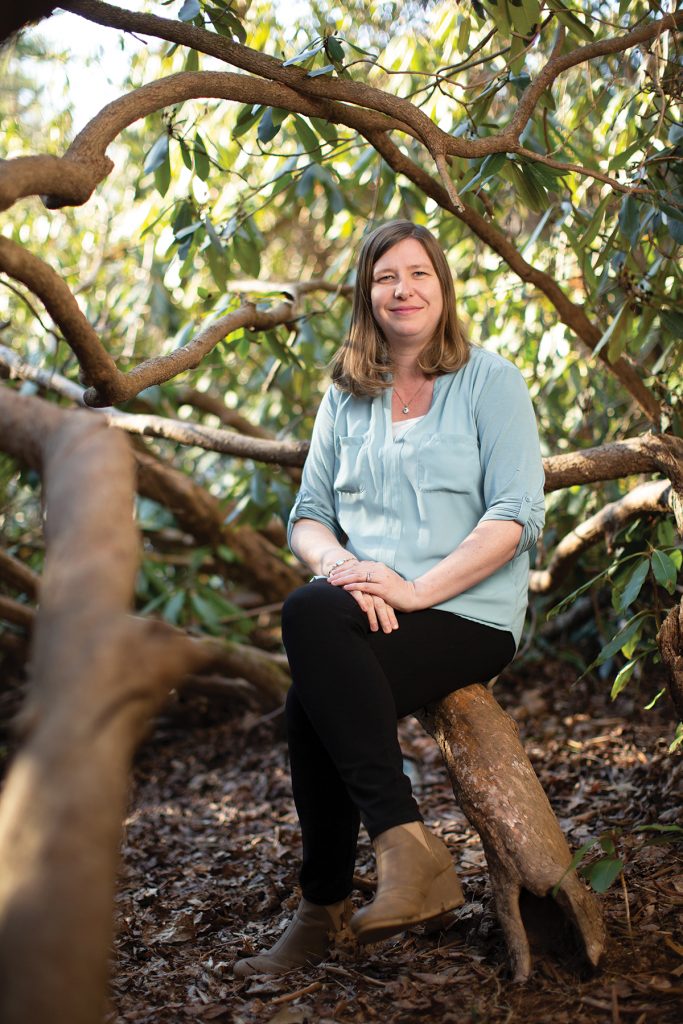Poetry contest encourages student voices

AIG Specialist April Summey gives aspiring student poets a chance to shine.
Portrait by Colby Rabon
Since 1999, the Carl Sandburg Home National Historic Site in Flat Rock has hosted its annual, nationwide Student Poetry Contest for grades 3-12. Henderson County schools typically account for 20 percent of the 250 to 300 submissions, and for 15 years, local teacher April Summey has entered her students’ work (in 2019, she had a first- and second-place prizewinner). Summey is an Academically and Intellectually Gifted Specialist at Hendersonville and Bruce Drysdale elementary schools.
What makes this contest a good teaching tool?
I like this contest because it has a theme. This year it’s “Seasons.” That gives students something to focus on and makes it clear that most poems have a deeper meaning. … We talk a lot about Sandburg, his poetry, and his process.
What ways do you teach poetry?
I’ll ask the younger kids, at first, to act it out.
Like a skit?
Yes — it’s so cute. I typically have them sketch it and color it, and do a symbol to represent it. I ask, “What’s the most important line? If you had to pick a color that fit the text, what would it be? What does the poem mean and what’s the underlying theme? Maybe they’ll create a theme hashtag, and use that to jump off into a discussion.
What about writing their own poems?
I’ll ask them to write their own take on Sandburg’s “Fog” poem, or give it a new title. I like to use the William Carlos Williams poem “The Red Wheel Barrow.” They say, “I don’t know, what do you mean [by the line] ‘So much depends [upon a red wheel barrow]?’ Why would that wheelbarrow be important?” They brainstorm and write out their own versions … really sweet poems and silly ones, depending on their mood. I always have kids who are so shy and hesitant, and then they write phenomenal poems. It’s a sequence that builds, talking about creating imagery and using literary devices.
I also like to introduce poets from different backgrounds: African American, female — William Carlos Williams was Puerto Rican. They see that poetry is diverse and can be found in any culture.
Isn’t poetry hard for some kids to wrap their heads around?
A lot of them think it’s hard, but kids love music and can connect to song lyrics, especially as they get older. I’ll ask them what their favorite song is. Then I’ll say, “Are they using imagery and figurative language?” They’ll think and about it and be like, “Oh my God! Yes!” They learn how to be more specific. How can the person hearing their poem feel like they are there, and visualize it really clearly?
When they get up and present and others give them compliments, their faces light up. These strengths come out, and they have a chance to shine. … Go to the site and read what the kids submit from around the nation — see how well those children write.
April is National Poetry Month. Winners of the 2021 Student Poetry Contest will participate in a virtual program on Sunday, April 18. To learn more and view the winners, visit nps.gov/carl/learn/news/2021-poetry-contest.htm.
